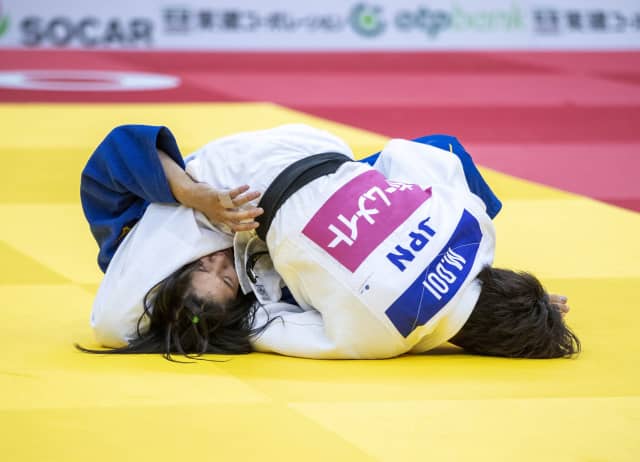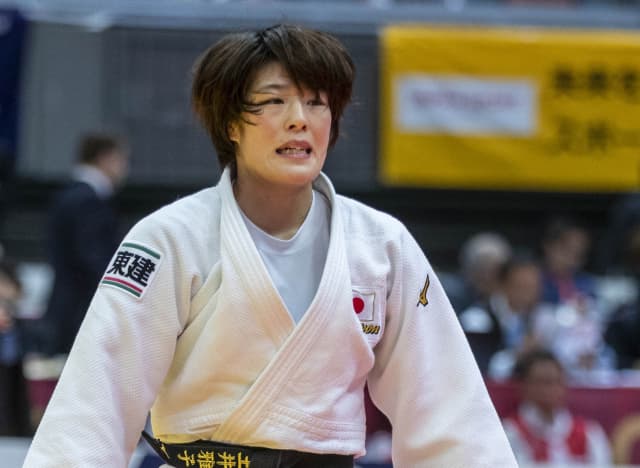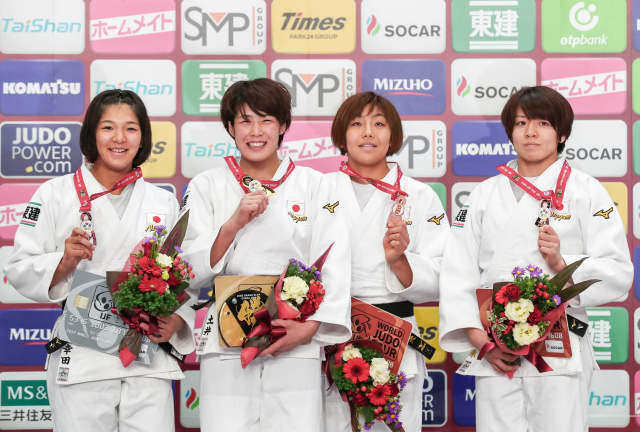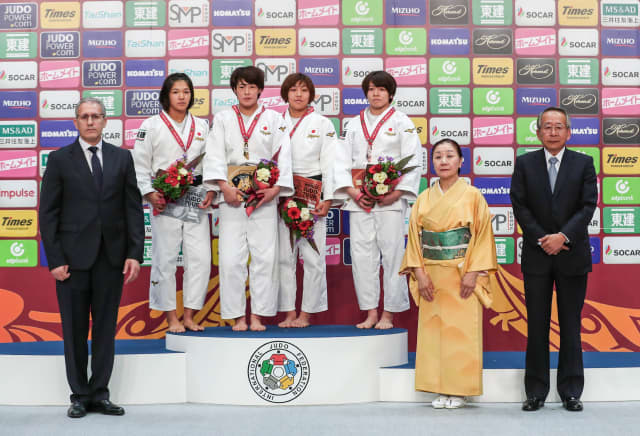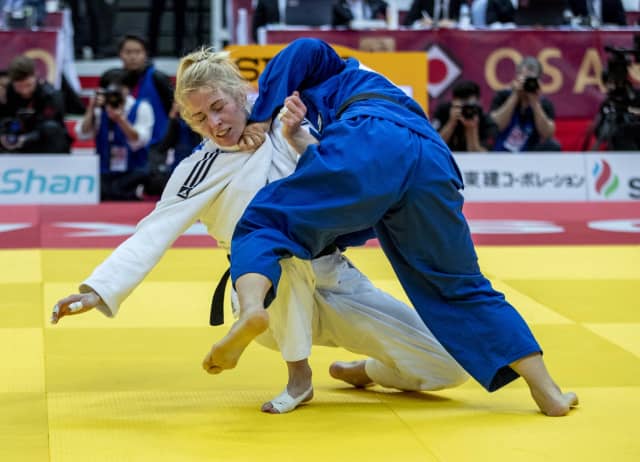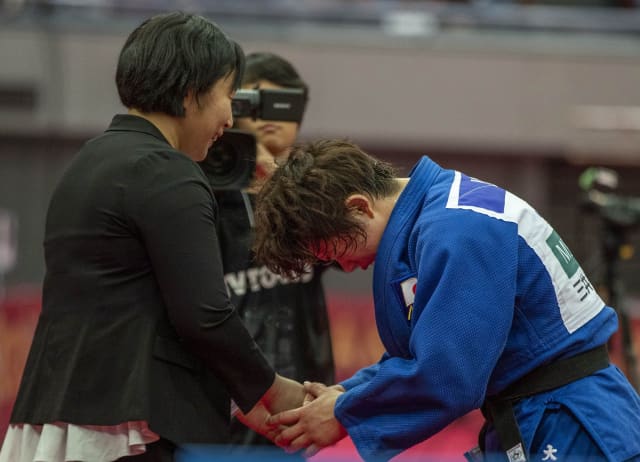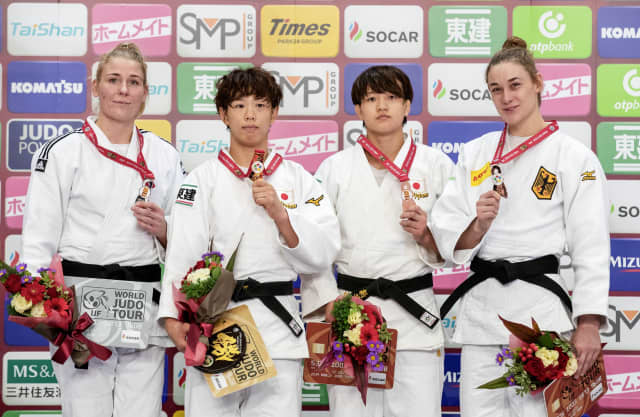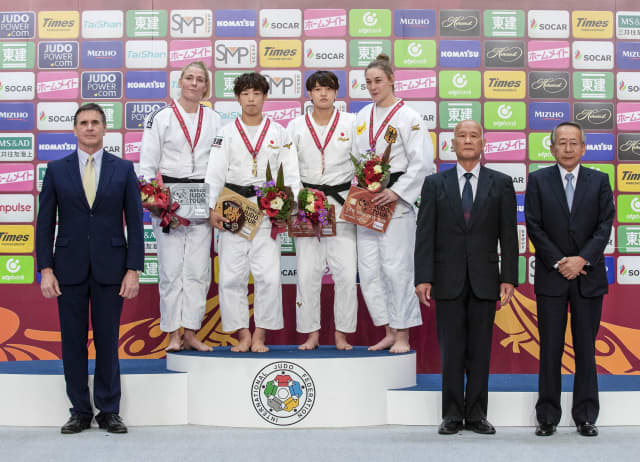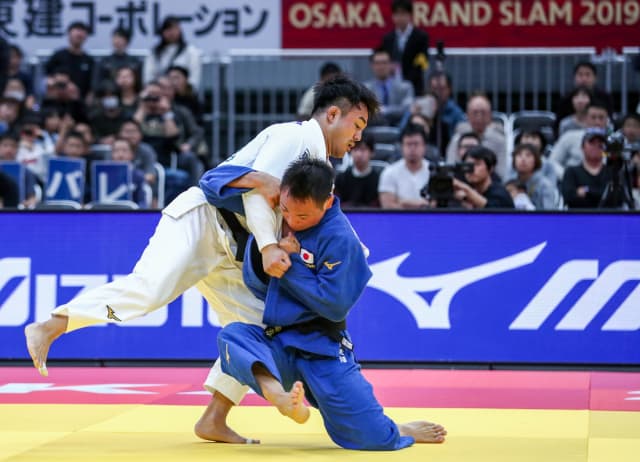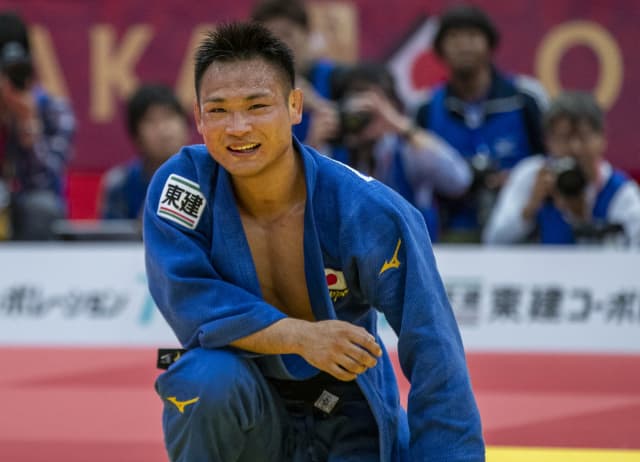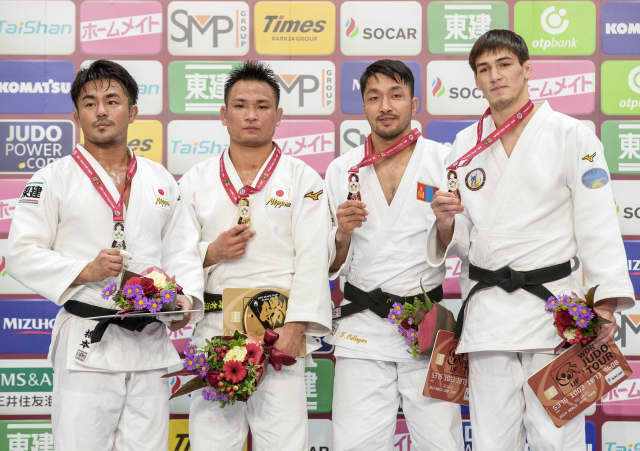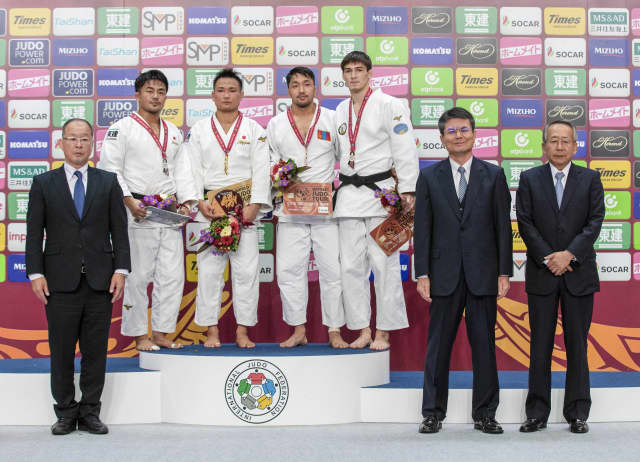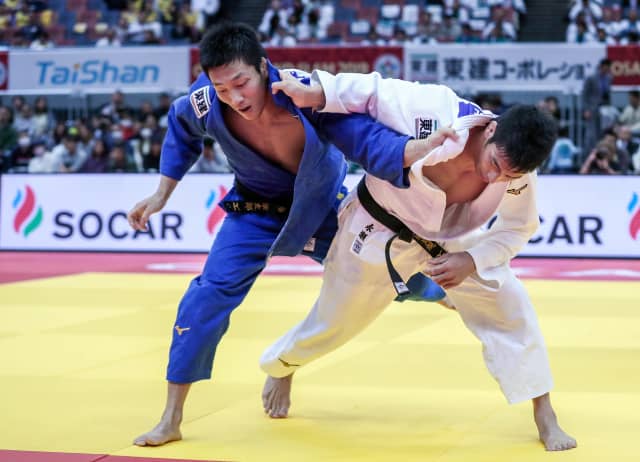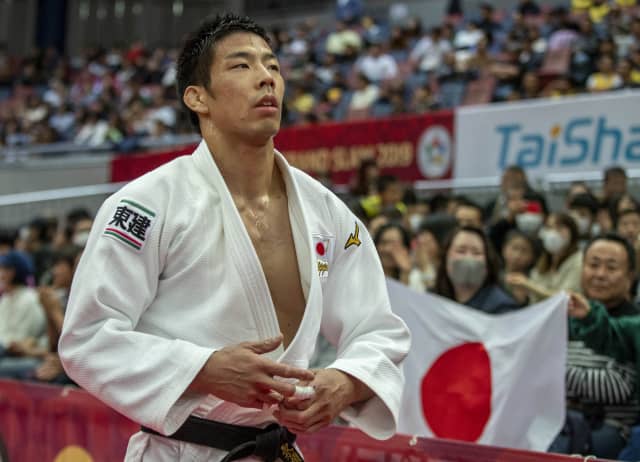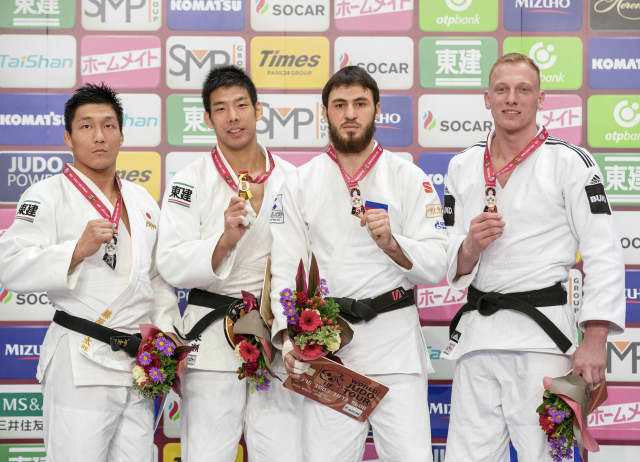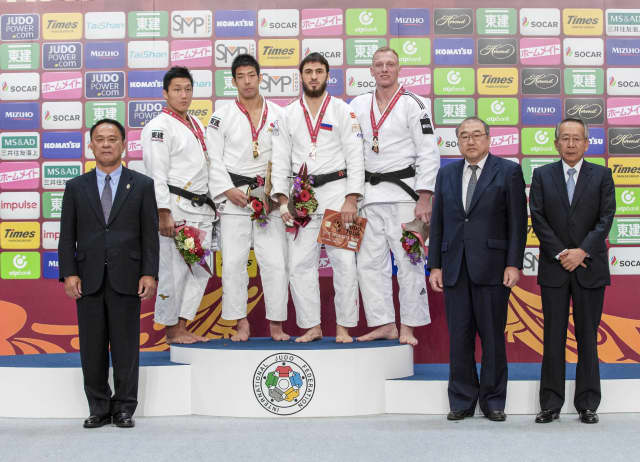-63kg: Japan win all four medals as DOI takes all the glory
Budapest Grand Prix winner DOI Masako (JPN) retained her 2018 Grand Slam crown at the expense of Grand Slam newcomer KOTA Nana (JPN) as the hosts won all four medals in the -63kg category. World number 22 DOI held down KOTA for 20 seconds and ippon for the best win of her career given the timing and proximity to the Tokyo 2020 Olympics.
In the first semi-final DOI bested four-time world medallist TASHIRO Miku (JPN) in golden score with a tomoe-nage for a waza-ari score.
In the second semi-final two-time World Judo Masters silver medallist NABEKURA Nami (JPN) fell to KOTA in golden score by ippon from a sumi-gaeshi.
The first bronze medal contest was won by NABEKURA who submitted Abu Dhabi Grand Slam silver medallist Maylin DEL TORO CARVAJAL (CUB) with a juji-gatame after two and a half minutes of golden score.
The second bronze medal was won by TASHIRO who beat Asian Games bronze medallist HAN Hee Ju (KOR) with a convincing display. TASHIRO will not be happy with bronze having seen an opportunity to cement her place for Tokyo 2020 slip away at the hands of a teammate but showed her character to bounce back in the final block.
Final (-63 kg)
Bronze Medal Fights (-63 kg)
Final Results (-63 kg)
-70kg: ONO submits POLLING for fourth Grand Slam title
Former world bronze medallist ONO Yoko (JPN) tapped out Abu Dhabi Grand Slam winner Kim POLLING (NED) with shime-waza in added time to deny the Dutch star back-to-back Grand Slam wins on the IJF World Judo Tour. ONO kept her feint Olympic ambitions alive by beating four-time Grand Slam winner POLLING who was caught with ashi-waza with 17 seconds left for a waza-ari score. However, upon a video review that decision was reversed and golden score was summoned. ONO outworked her opponent on the ground and submitted the world number 17 with shime-waza for ippon and Osaka gold.
In the first semi-final Brasilia Grand Slam silver medallist Giovanna SCOCCIMARRO (GER) lost out to POLLING who opened the scoring with her sutemi-waza and added a second waza-ari by pinning down her rival for 10 seconds to reach the final in consecutive Grand Slam events.
In the second semi-final ONO defeated former world number one Elvismar RODRIGUEZ (VEN) after three minutes of golden score. Tokai University student RODRIGUEZ was fighting in her adopted homeland and matched her Japanese opponent for seven minutes until an o-uchi-gari sent the Venezuelan over for a waza-ari score.
The first bronze medal was awarded to two-time world champion ARAI Chizuru (JPN) who won a lengthy battle against Tokyo-based RODRIGUEZ. ARAI and RODRIGUEZ went toe-to-toe for over 10 minutes as the Japanese judoka came up with the one and only score after six minutes and 39 seconds of golden score following four minutes of regulation time. The hosts’ number one in the -70kg category capitalised on her tired opponent being momentarily off balance as she utilised straight forward te-waza for a place on the podium.
The second bronze medal was won by SCOCCIMARRO with a buzzer-beating waza-ari score to defeat world number 18 Miriam BUTKEREIT (GER). World number 16 SCOCCIMARRO earned her third Grand Slam medal as her teammate finished fifth but they both showed their character and team mentality by walking out of the field of play together as they discussed the replays that were being shown on the main screen.
Final (-70 kg)
Bronze Medal Fights (-70 kg)
Final Results (-70 kg)
-73kg: EBINUMA upstages HASHIMOTO in Japan’s specialist category
Three-time world champion and double Olympic bronze medallist EBINUMA Masashi (JPN) defeated former world champion HASHIMOTO Soichi (JPN) in golden score to claim his third Grand Slam title. After the reigning Olympic and world champion ONO Shohei was ruled out with an index finger injury, and lost the opportunity to seal his selection by winning gold in Osaka, the onus was on HASHIMOTO going out and proving himself after being overlooked for the individual competition at the World Championships. EBINUMA took advantage of a slip from his teammate and held down the four-time Grand Slam winner for ippon to ensure that he will earn international outings in 2020.
In the first semi-final 2017 Tokyo Grand Slam winner TATSUKAWA Arata (JPN) was dismissed in golden score against HASHIMOTO. TATSUKAWA was reprimanded for not taking a grip which was his third penalty to send the favourite into the final.
In the second semi-final EBINUMA avenged his Kodokan Cup final defeat to HARADA Kenshi (JPN) by beating the IJF World Judo Tour rookie by a waza-ari score to advance to the final.
The first bronze medal was won by former world bronze medallist GANBAATAR Odbayar (MGL) after HARADA made his third and final error to receive hansoku-make with nine seconds left as Grand Slam hardware eluded the newcomer to the international stage.
The second bronze medal went to Junior World Championships gold medallist Somon MAKHMADBEKOV (TJK) after TATSUKAWA made a careless mistake in the closing seconds. The home judoka, who led by a waza-ari, stepped out of the area with three seconds left to be penalised with his third shido and was dismissed to hand the bronze medal to the 20-year-old judoka from Tajikistan.
Final (-73 kg)
Bronze Medal Fights (-73 kg)
Final Results (-73 kg)
-81kg: NAGASE in pole position for Tokyo 2020 after high stakes final
Former world champion NAGASE Takanori (JPN) defeated former world silver medallist FUJIWARA Sotaro (JPN) to win his sixth Grand Slam gold medal and to take charge of the race for Tokyo 2020. As expected, world number 15 NAGASE and world number 12 FUJIWARA were well-matched and two minutes of added time was required to produce a winner as the latter was penalised for passivity for the third time to settle the first men’s final on day two.
In the first semi-final NAGASE defeated Asian Championships bronze medallist TOMOKIYO Hikaru (JPN) with a huge o-soto-gari and sealed his win with an emphatic seoi-otoshi.
In the second semi-final FUJIWARA held down 22-year-old Grand Slam debutant Turpal TEPKAEV (RUS) for 20 seconds for ippon to book an all-Japanese final.
The first bronze medal was won by TEPKAEV after Tashkent Grand Prix silver medallist Kamoliddin RASULOV (UZB) was given his marching orders for picking up his third shido for passivity with 55 seconds left.
The second bronze medal went to world number six DE WIT who saw off Universiade winner TOMOKIYO Hikaru (JPN) to capture his first Grand Slam medal in over a year. The Dutchman lifted his opponent up and over for a waza-ari and moved into the holddown but TOMOKIYO escaped after nine seconds. DE WIT saw out the remainder of the contest without being threatened to secure his eighth Grand Slam honour.

